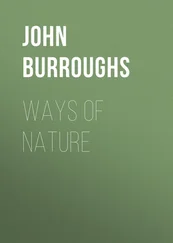John Burroughs - Under the Maples
Здесь есть возможность читать онлайн «John Burroughs - Under the Maples» — ознакомительный отрывок электронной книги совершенно бесплатно, а после прочтения отрывка купить полную версию. В некоторых случаях можно слушать аудио, скачать через торрент в формате fb2 и присутствует краткое содержание. Жанр: foreign_antique, foreign_prose, Историческая проза, на английском языке. Описание произведения, (предисловие) а так же отзывы посетителей доступны на портале библиотеки ЛибКат.
- Название:Under the Maples
- Автор:
- Жанр:
- Год:неизвестен
- ISBN:нет данных
- Рейтинг книги:4 / 5. Голосов: 1
-
Избранное:Добавить в избранное
- Отзывы:
-
Ваша оценка:
- 80
- 1
- 2
- 3
- 4
- 5
Under the Maples: краткое содержание, описание и аннотация
Предлагаем к чтению аннотацию, описание, краткое содержание или предисловие (зависит от того, что написал сам автор книги «Under the Maples»). Если вы не нашли необходимую информацию о книге — напишите в комментариях, мы постараемся отыскать её.
Under the Maples — читать онлайн ознакомительный отрывок
Ниже представлен текст книги, разбитый по страницам. Система сохранения места последней прочитанной страницы, позволяет с удобством читать онлайн бесплатно книгу «Under the Maples», без необходимости каждый раз заново искать на чём Вы остановились. Поставьте закладку, и сможете в любой момент перейти на страницу, на которой закончили чтение.
Интервал:
Закладка:
Over thirty years ago a writer on flying-machines had this to say about the flight of sea-gulls: "Sweeping around in circles, occasionally elevating themselves by a few flaps of the wings, they glide down and up the aerial inclines without apparently any effort whatever. But a close observation will show that at every turn the angle of inclination of the wings is changed to meet the new conditions. There is continual movement with power – by the bird it is done instinctively, by our machine only through mechanism obeying a mind not nearly so well instructed."
The albatross will follow a ship at sea, sailing round and round, in a brisk breeze, on unbending wing, only now and then righting itself with a single flap of its great pinions. It literally rides upon the storm.
IV
BIRD INTIMACIES
When, as sometimes happens, I feel an inclination to seek out new lands in my own country, or in other countries, to see what Nature is doing there, and what guise she wears, something prompts me to pause, and after a while to say to myself: "Look a little closer into the nature right at your own door; do a little intensive observation at home, and see what that yields you. The enticement of the far-away is mostly in your imagination; let your eyes and your imagination play once more on the old familiar birds and objects."
One season in my walks to the woods I was on the lookout for a natural bracket among the tree-branches, to be used in supporting a book-shelf. I did not find it; but one day in a shad-blow tree, within a few feet from the corner of my own house, I found what I was searching for, perfect in every particular – the right angle and the supporting brace, or hypothenuse. It gave me a hint I have not forgotten.
I find that one has only to overcome a little of his obtuseness and indifference and look a little more closely upon the play of wild life about him to realize how much interesting natural history is being enacted every day before his very eyes – in his own garden and dooryard and apple-orchard and vineyard. If one's mind were only alert and sensitive enough to take it all in! Whether one rides or walks or sits under the trees, or loiters about the fields or woods, the play of wild life is going on about him, and, if he happens to be blessed with the seeing eye and the hearing ear, is available for his instruction and entertainment. On every farm in the land a volume of live natural history goes to waste every year because there is no historian to note the happenings.
The drama of wild life goes on more or less behind screens – a screen of leaves or of grass, or of vines, or of tree-trunks, and only the alert and sympathetic eye penetrates it. The keenest of us see only a mere fraction of it. If one saw one tenth of the significant happenings that take place on his few acres of orchard, lawn, and vineyard in the course of the season, or even of a single week, what a harvest he would have! The drama of wild life is played rapidly; the actors are on and off the stage before we fairly know it, and the play shifts to other stages.
I wonder how many of the scores of persons passing along the road between my place and the railway station one early May day became aware that a rare bird incident was being enacted in the trees over their heads. It was the annual sängerfest of the goldfinches – one of the prettiest episodes in the lives of any of our birds, a real musical reunion of the goldfinch tribe, apparently a whole township, many hundreds of them, filling scores of the tree-tops along the road and in the groves with a fine, sibilant chorus which the ear refers vaguely to the surrounding tree-tops, but which the eye fails adequately to account for. It comes from everywhere, but from nowhere in particular. The birds sit singly here and there amid the branches, and it is difficult to identify the singers. It is a minor strain, but multitudinous, and fills all the air. The males are just donning their golden uniforms, as if to celebrate the blooming of the dandelions, which, with the elm-trees, afford them their earliest food-supply. While they are singing they are busy cutting out the green germs of the elm flakes, and going down to the ground and tearing open the closed dandelion-heads that have shut up to ripen their seeds, preparatory to their second and ethereal flowering when they become spheres of fragile silver down.
Whether this annual reunion of the goldfinches should be called a dandelion festival, or a new-coat festival, or whether it is to bring the sexes together preliminary to the mating-season, I am at a loss to decide. It usually lasts a week or more, and continues on wet days as well as on fair. It all has a decidedly festive air, like the fête-days of humans. I know of nothing like it among other birds. It is the manifestation of something different from the flocking instinct; it is the social and holiday instinct, bringing the birds together for a brief season, as if in celebration of some special event or purpose. I have observed it in my vicinity every spring for many years, usually in April or early May, and it is the prettiest and most significant bird episode, involving a whole species, known to me.
The goldfinch has many pretty ways. He is one of our most amiable birds. So far as my knowledge goes, he is not capable of one harsh note. His tones are all either joyous or plaintive. In his spring reunions they are joyous. In the peculiar flight-song in which he indulges in the mating season, beating the air vertically with his round, open wings, his tones are fairly ecstatic. His call to his mate when she is brooding, and when he circles about her in that long, billowy flight, the crests of his airy waves being thirty or forty feet apart, calling, "Perchic-o-pee, perchic-o-pee," as if he were saying, "For love of thee, for love of thee," and she calling back, "Yes, dearie; yes, dearie" – his tones at such times express contentment and reassurance.
When any of his natural enemies appear – a hawk, a cat, a jay – his tones are plaintive and appealing. "Pit-y, pit-y!" he cries in sorrow and not in anger.
When with his mate he leads their brood about the August thistles, the young call in a similar tone. When in July the nesting has begun, the female talks the prettiest "baby talk" to her mate as he feeds her. The nest-building rarely begins till thistledown can be had – so literally are all the ways of this darling bird ways of softness and gentleness. The nest is a thick, soft, warm structure, securely fastened in the fork of a maple or an apple-tree.
None of our familiar birds endear themselves to us more than does the bluebird. The first bluebird in the spring is as welcome as the blue sky itself. The season seems softened and tempered as soon as we hear his note and see his warm breast and azure wing. His gentle manners, his soft, appealing voice, not less than his pleasing hues, seem born of the bright and genial skies. He is the spirit of the April days incarnated in a bird. He has the quality of winsomeness, like the violet and the speedwell among the flowers. Not strictly a songster, yet his every note and call is from out the soul of harmony. The bluebird is evidently an offshoot from the thrush family, and without the thrush's gift of song; still his voice affords us much of the same pleasure.
How readily the bluebirds become our friends and neighbors when we offer them suitable nesting-retreats! Bring them something from nature, something with the bark on – a section of a dry beech or maple limb in which the downy woodpecker has excavated his chamber and passed the winter or reared his brood; fasten it in early spring upon the corner of your porch, or on the trunk of a near-by tree, and see what interesting neighbors you will soon have. One summer I brought home from one of my walks to the woods a section, two or three feet long, of a large yellow birch limb which contained such a cavity as I speak of, and I wired it to one of the posts of the rustic porch at Woodchuck Lodge. The next season a pair of bluebirds reared two broods in it. The incubation of the eggs for the second brood was well under way when I appeared upon the scene in early July. My sudden presence so near their treasures, and my lingering there with books and newspapers, disturbed the birds a good deal. The first afternoon the mother bird did not enter the cavity for hours. I shall always remember the pretty and earnest manner in which the male tried to reassure her and persuade her that the danger was not so imminent as it appeared to be, probably encouraging a confidence in his mate which he did not himself share. The mother bird would alight at the entrance to the chamber, but, with her eye fixed upon the man with the newspaper, feared to enter. The male, perched upon the telegraph wire fifty feet away, would raise his wings and put all the love and assurance in his voice he was capable of, apparently trying to dispel her fears. He would warble and warble, and make those pretty wing gestures over and over, saying so plainly: "It is all right, my dear, the man is harmless – absorbed there in his newspaper. Go in, go in, and keep warm our precious eggs!" How long she hesitated! But as night grew near she grew more and more anxious, and he more and more eloquent. Finally she alighted upon the edge of the overhanging roof and peered down hesitatingly. Her mate applauded and encouraged till finally she made the plunge and entered the hole, but instantly came out again; her heart failed her for a moment; but she soon returned and remained inside. Then her mate flew away toward the orchard, uttering a cheery note which doubtless she understood.
Читать дальшеИнтервал:
Закладка:
Похожие книги на «Under the Maples»
Представляем Вашему вниманию похожие книги на «Under the Maples» списком для выбора. Мы отобрали схожую по названию и смыслу литературу в надежде предоставить читателям больше вариантов отыскать новые, интересные, ещё непрочитанные произведения.
Обсуждение, отзывы о книге «Under the Maples» и просто собственные мнения читателей. Оставьте ваши комментарии, напишите, что Вы думаете о произведении, его смысле или главных героях. Укажите что конкретно понравилось, а что нет, и почему Вы так считаете.











